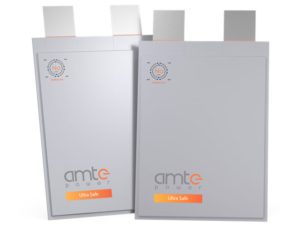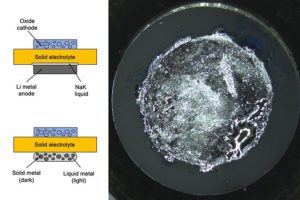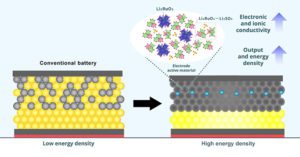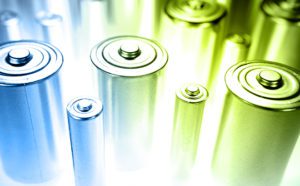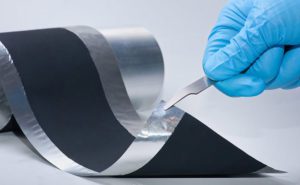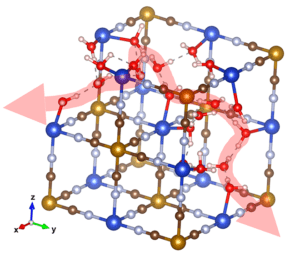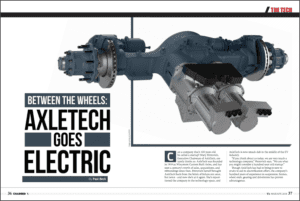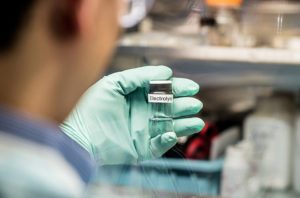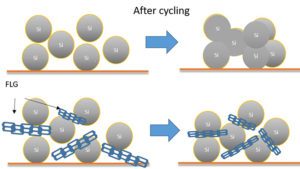Battery manufacturers AMTE Power and Faradion have announced a collaboration that combines Faradion’s IP with AMTE’s design and manufacturing capabilities. The collaboration grants AMTE a license to manufacture and sell sodium-ion cells for battery packs. Faradion says its technology is scalable and can leverage AMTE’s existing lithium-ion manufacturing facilities. AMTE CEO Kevin Brundish said, “This… Read more »
Search Results Found For: "sodium"
MIT researchers use semisolid electrode to prevent short circuits in lithium metal batteries
Researchers may have found ways to prevent dendrite formation in solid-state batteries. Their findings are described in the journal Nature Energy, in a paper by MIT graduate student Richard Park, MIT Professor Yet-Ming Chiang and researchers at MIT and other institutions. Chiang explained, “The only way you can reach the energy densities that are interesting… Read more »
New electrode materials bring all-solid-state batteries a step closer
At the Osaka Prefecture University, Atsushi Sakuda and colleagues have been studying a type of battery that they believe holds the key to the future of energy storage: all-solid-state batteries (ASSBs). “In 2019, we developed a solid electrolyte using sodium ions, which showed the highest conductivity in the world reported at room temperature,” said Dr…. Read more »
First Cobalt performs feasibility study for Canadian cobalt refinery expansion
First Cobalt has announced positive results from an independent feasibility study conducted on its permitted cobalt refinery in Ontario, Canada. The study contemplates expanding the existing facility and adapting it to be North America’s first producer of cobalt sulfate, an essential component in the manufacturing of EV batteries. Study highlights: Annual production of 25,000 tons… Read more »
Carnegie Mellon researchers develop semi-liquid lithium metal anode to pair with solid ceramic electrolytes
Researchers from Carnegie Mellon University have developed a semi-liquid lithium metal-based anode that could lead to higher capacity and better safety than typical lithium metal-based batteries that use lithium foil as anodes. The research team published their findings in the June 2019 issue of Joule. “Incorporating a mewtallic lithium anode into lithium-ion batteries has the… Read more »
Fraunhofer’s dry coating process for electrodes could make cell production in Europe economical
Researchers at Germany’s Fraunhofer Institute for Material and Beam Technology IWS have developed a new battery cell production process that coats electrodes with a dry film instead of liquid chemicals. This simplified process saves energy and eliminates toxic solvents. The Fraunhofer researchers, with colleagues from Samsung, describe their findings in a new paper, “Overcoming binder… Read more »
Researchers explore proton-hopping mechanism to improve EV batteries
Researchers at Oregon State University have shown that a chemical mechanism known as proton-hopping may provide a new method of energy storage for EVs and other high-power applications. “Coming up with Faradaic electrodes that afford batteries energy density and capacitors power with excellent cycle life has been a big challenge. So far, most of the… Read more »
Between the wheels: AxleTech goes electric
Can a company that’s 100 years old be called a startup? Mary Petrovich, Executive Chairman of AxleTech, certainly thinks so. AxleTech was founded in 1919 as Wisconsin Custom Built Axles, and has seen a century’s worth of sales, acquisitions, and rebrandings since then. Petrovich herself brought AxleTech back from the brink of failure not once,… Read more »
PNNL research finds that optimal salt concentration increases battery life
Researchers at the DOE’s Pacific Northwest National Laboratory have discovered that the “special sauce” of batteries is all about the salt concentration. By getting the right amount of salt right where they want it, they’ve demonstrated that a lithium-metal battery can undergo about seven times more charge/discharge cycles than batteries with conventional electrolytes. Finding an electrolyte solution… Read more »
Adding graphene girders to silicon electrodes could double battery life
Graphite has long been the default choice of material for anodes, but researchers dream of replacing graphite with silicon, which has ten times the gravimetric energy density. Unfortunately, silicon has several issues that limit its commercial use – it expands during lithiation, causing particles to agglomerate in ways that impede efficiency, and it is not… Read more »




